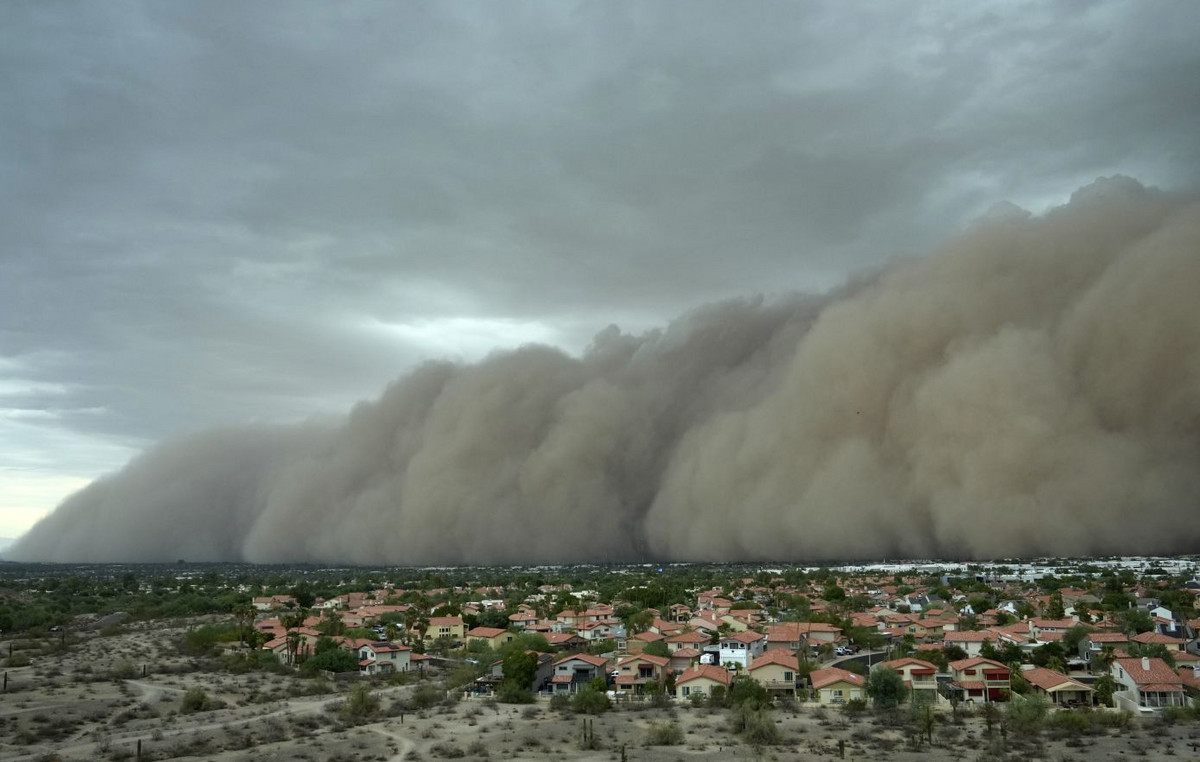The red, white, green and black flag of the Free Syrian Army flew over Damascus on Sunday (8), as thousands of happy residents gathered in the main square — after President Bashar al-Assad was ousted from power.
Over the past 11 days, a rebel alliance has attacked Syria in the boldest challenge to Assad’s government in years — after decades of brutal rule by the Assad dynasty, marked by fighting, bloodshed and oppressive political repression.
“This is an important moment, not just for the Syrian people, but for the people of the Middle East, Lebanese, Palestinians, Syrians and others,” Firas Maksad, senior fellow at the Washington, D.C.-based Middle East Institute, told CNN this Sunday (8).
According to Maskad “this is a regime that, for more than 50 years, under the mantra of freedom, unity and socialism, oppressed, tortured and disappeared millions in Syria”.
Now, as the anti-regime coalition begins to disband the dictator’s army and lay out its vision for a post-Assad Syria, experts wonder whether the next phase will be a new dawn for a people strangled by a brutal autocracy — or whether sectarianism will bring a different kind of authoritarian government.
‘Extremely challenging’ power transition
Syria’s armed opposition ultimately plans to form a government defined by institutions and a “council chosen by the people,” Abu Mohammad al-Golani, the militant figure leading the latest rebel offensive, told reporters. CNN .
He leads the dominant opposition coalition group, Hayat Tahrir Al-Sham (HTS), a former al Qaeda affiliate.
Golani declared victory for the “entire Islamic nation” on Sunday (8), in his first public comments since the rebel-led coup, which he said “marks a new chapter in the history of the region”.
“Syria is being purified by the grace of Almighty God and the efforts of the heroic Mujahideen,” Golani addressed a crowd at the Umayyad Mosque in Damascus.
The rebel leader denounced “Iranian ambitions” in Syrian territory, where Tehran, and its representative Hezbollah, were the main supporters of the Assad government.
“My heart has longed for this moment,” Golani added. “There is not a single house in Syria that the war has not touched.”
Before armed fighters launched a stunning offensive last month, the president’s grip divided Syrian territory between the regime and rebel forces — some of whom are backed by international powers including the United States and Turkey.
What emerged on November 27 was the “Militant Operations Command,” an alliance of groups united by a shared cause — to liberate government-controlled areas and depose the president.
Golani told CNN that if opposition forces are successful in ousting Assad, they will form “a state of governance, institutions and so on.”
Shortly after the takeover of Damascus by southern rebels, Syrian Prime Minister Mohammad Ghazi Al-Jalali promised to cooperate with the groups and endorse “a smooth and systematic transition of government functions” while preserving “state facilities” in a recorded message.
A similar memo was shared, saying all public institutions would remain under the prime minister’s jurisdiction “until they are officially handed over.”
Syrian rebels also alleged that senior regime officials were preparing to defect in Damascus.
But delegating a new system of government will be “extremely challenging” for a “diverse coalition” of armed combatants, according to Jerome Drevon, a senior analyst at the Brussels-based think tank International Crisis Group.
“Some groups are more structured, more organized, including (HTS) and some of their allies,” he told CNN this Sunday (8), while others are “more local entities”.
Human rights concerns
As the rebels advanced, so did Golani’s charm offensive.
The rebel leader, who emerged as a young al-Qaeda fighter against the US in Iraq, has sought to lessen the shadow of his extremist roots.
The United States designated HTS as a Foreign Terrorist Organization in 2018 and offered Jolani a $10 million reward.
Millions of Syrians, including those from Christian minorities and other religious communities, are haunted by a legacy of persecution suffered at the hands of extremist groups such as al Qaeda and the Islamic State.
Human rights advocates have accused HTS and other anti-regime groups of repressing residents in areas under their control — including the northwestern provinces of Idlib, western Homs and Aleppo — and tortured and abused dissidents.
Golani told CNN that prison abuse was “not done under our orders or instructions” and that HTS had previously penalized perpetrators.
“Anti-government armed groups have promised restraint and upholding humanitarian standards, but they will be judged by their conduct, not their words,” said Adam Coogle, deputy Middle East director at Human Rights Watch, in a statement Wednesday. .
Find out who the Syrian rebel leader is and the group that overthrew Bashar al-Assad
In a speech on state TV this Sunday (8), a Syrian rebel commander insisted that “all sects” would be protected, adding: “Syria is for everyone, without exception… Syria is for the Sunnis, the Druze, the Alawites. .”
Maksad, of the Middle East Institute, warned that the fall of the Assad regime could be a “time of potential danger” for minority communities in the country, including religious groups such as Alawites, Ismailis, Druze and Christians.
“There are concerns about the more Islamic jihadist elements of this rebel force,” he said, particularly when “it comes to Hayat Tahrir Al-Sham (HTS), the main group driving the country’s armed opposition, which has been designated a terrorist group by the U.S. and many other countries”, he added.
‘Heroic lions who made us proud’
But on the streets of Syria, such concerns were overshadowed by scenes of mass enthusiasm and celebration.
Thousands of people gathered in the main square in Damascus, where rebels ransacked Assad’s residence.
“After the fear he (Assad) and his father made us live in for many years, and the panic and state of terror I was living in, I can’t believe it,” Omar Daher, a 29-year-old lawyer, exclaimed to the Associated Press .

Another Damascus resident, Mohammed Amer Al-Oulabi, 44, said that “from Idlib to Damascus, it only took them (opposition forces) a few days, thank God. May God bless you, the heroic lions who have made us proud.”
On the other side, Syrian refugees forced to flee the war shared their hopes of returning to a peaceful country.
“We thank our people in Syria and the free for saving us from injustice,” Wissam Ahmed, a displaced Syrian in Lebanon, shared with Reuters on Sunday.
“We are going to Syria, God willing, to rebuild our future and our homes. The feeling is really great, we can’t describe it better,” he added.
This content was originally published in Analysis: Can Syrian rebels change a country marked by war? on the CNN Brasil website.
Source: CNN Brasil
Bruce Belcher is a seasoned author with over 5 years of experience in world news. He writes for online news websites and provides in-depth analysis on the world stock market. Bruce is known for his insightful perspectives and commitment to keeping the public informed.







